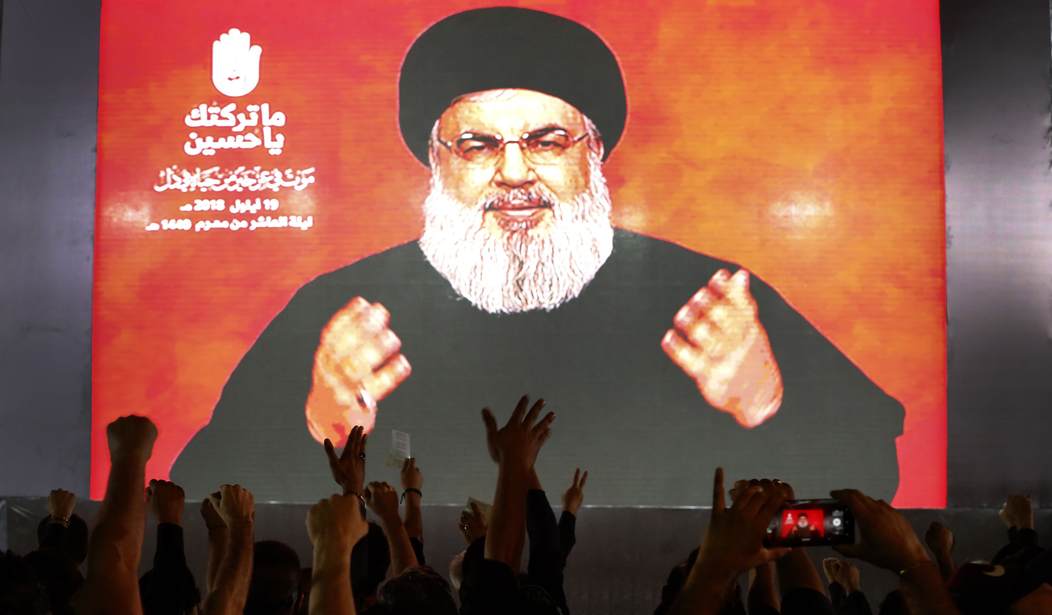Since 1995, the United States has recognized the Lebanese group Hezbollah as a terrorist group. Key to this designation was the inclusion of Hezbollah’s “political” arm — a difference without distinction from the military wing of the terror group. The political/social services/charitable wing of the party is run by the same people who plot to kill innocents.
But Europeans chose to ignore the obvious and have lately recognized Hezbollah’s “military wing” as a terrorist organization while legitimizing its “political” wing by tolerating the radicalism in their midst. Hezbollah has set up radical mosques and community associations across the EU, despite their blood-curdling threats against Israel and the Jews.
But the scales have now fallen from the eyes of Germany, the most important nation in Europe. Germany has completely banned Hezbollah, with the interior ministry saying it now considers the entire group a “Shiite terrorist organization.”
“Hezbollah is a terrorist organisation deemed responsible for numerous attacks and kidnappings worldwide,” Interior Minister Horst Seehofer told Germany’s Bild daily.
The interior minister “has banned the operation of the group” in Germany with immediate effect, his spokesman tweeted.
“Even in times of crisis the rule of law is upheld,” he wrote.
In addition to the ban, police raided Hezbollah mosques.
Dozens of police and special forces stormed mosques and associations linked to Hezbollah in Bremen, Berlin, Dortmund and Muenster in the early hours of the morning, German media reported.
The Al-Irshad mosque in Berlin was sealed off with at least 16 police vans parked outside, an AFP photographer saw. Masked police officers were seen walking in and out of the mosque.
If the rest of the EU follows Germany’s example, it will cripple Hezbollah in a way that no military attack ever could. The terrorists use Western Europe as a safe haven, a quiet place to plan attacks and move people and weapons. No one knows how many Hezbollah operatives are in EU nations, but judging by the raids in Germany, their operations are extensive.
Germany’s journey to enlightenment was not quick.
The decision followed outrage over the display of the Hezbollah flag, which features a Kalashnikov assault rifle, at pro-Palestinian demonstrations in London.
The mood began shifting in Germany too with parliament passing a resolution last December that urged the government to ban the group from operating in Germany altogether.
The interior ministry’s prohibition order means the group’s supporters are no longer allowed to display Hezbollah symbols or hold gatherings, and that funds can be frozen.
The United States was quick to praise the German action.
US ambassador to Germany, Richard Grenell welcomed Berlin’s change in stance and called on “all European Union member states to take similar action”.
In Jerusalem, Israeli Foreign Minister Israel Katz praised what he called “a significant step in the global fight against terrorism.” He too urged the European Union “to do the same.”
Hezbollah is Iran’s proxy and has lost a lot of friends in Europe with its brutal tactics during the Syrian civil war. But Iran still funds the terrorists to the tune of $700 million a year, so any cutoff in financing from Europe will not significantly affect its operations in the Middle East.
Since Hezbollah was created in 1982, most nations have maintained the fiction that the group has a non-violent, peaceful political element only interested in bettering the lives of the Lebanese Shiites. They’ve proven otherwise, bullying other political parties in Lebanon and threatening them with violence if they didn’t submit. They have the guns and the will to use them.










Join the conversation as a VIP Member